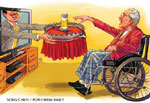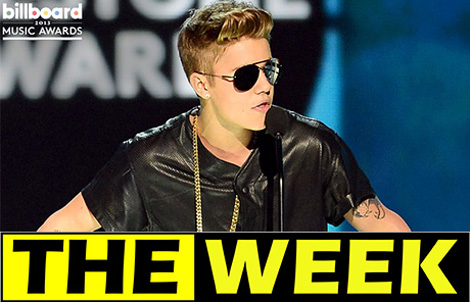Time to lay the Marlboro Man to rest
Updated: 2013-05-31 07:14
By Michael O'Leary (China Daily)
|
|||||||||||
In the United States, the Marlboro Man is one of the most enduring advertising images of the 20th century. The Marlboro Man in his various incarnations - the cowboy being the most famous - was masculine, strong, and very "cool". The Marlboro Man campaign was phenomenally successful: By the time the campaign ended in the US almost 50 years later, Marlboro had become one of the best-selling cigarette brands of all time.
The Marlboro Man advertising campaign demonstrates why the theme of this year's World No Tobacco Day - banning tobacco advertising, promotion, and sponsorship - is so important. In conveying an image of cigarette smoking as glamorous and desirable, the Marlboro Man campaign was very successful in encouraging people to smoke.
Advertising and promotion of tobacco link tobacco consumption with success, fun, and other attractive qualities. Advertising and marketing of tobacco products, as well as indirect promotion, including the sponsoring of music and sports events, help create an environment where smoking is seen as socially acceptable, or "normal".
Tobacco advertising, promotion and sponsorship foster an illusion that tobacco is just like other readily available consumer products. But the reality is tobacco is a lethal product. It kills up to half of its regular users. Indeed, some of the actors who appeared in the Marlboro Man advertisements are themselves reported to have died from smoking-related diseases.
The WHO Framework Convention on Tobacco Control, which China ratified in 2005, requires a comprehensive ban of all forms of tobacco advertising, promotion and sponsorship. Evidence from around the world shows that comprehensive marketing bans lead to fewer people starting and continuing to smoke. Comprehensive bans on all forms of tobacco advertising, promotion and sponsorship are therefore especially important for protecting young people from the harms of tobacco. Even brief exposure to tobacco marketing can influence adolescents.
Banning tobacco advertising, promotion and sponsorship is one of the most cost-effective ways to reduce demand for tobacco products. It is therefore one of the most cost-effective measures governments can take to reduce demand for tobacco products, and in doing so, protect the health of their populations.
In China, the Advertising Law bans the advertising of tobacco products in the mass media, including the radio, movies, TV, newspapers and magazines, as well as in public places such as waiting rooms, theaters, conference halls and sports centers. However, analysis conducted by WHO for the 2011 Global Report on the Tobacco Epidemic found that these advertising bans are not always complied with.
Today's Top News
China corrects Japan on treaty's Diaoyu implications
Manila condemned over grounded warship
Russian envoy vows to boost ties
EU to step up investment in China
Higher education goes global
Plastic ban fails with ultra-thin bags
Flow test for water project gets underway
Campaign to help moms find breastfeeding rooms
Hot Topics
Lunar probe , China growth forecasts, Emission rules get tougher, China seen through 'colored lens', International board,
Editor's Picks

|

|

|

|

|

|





